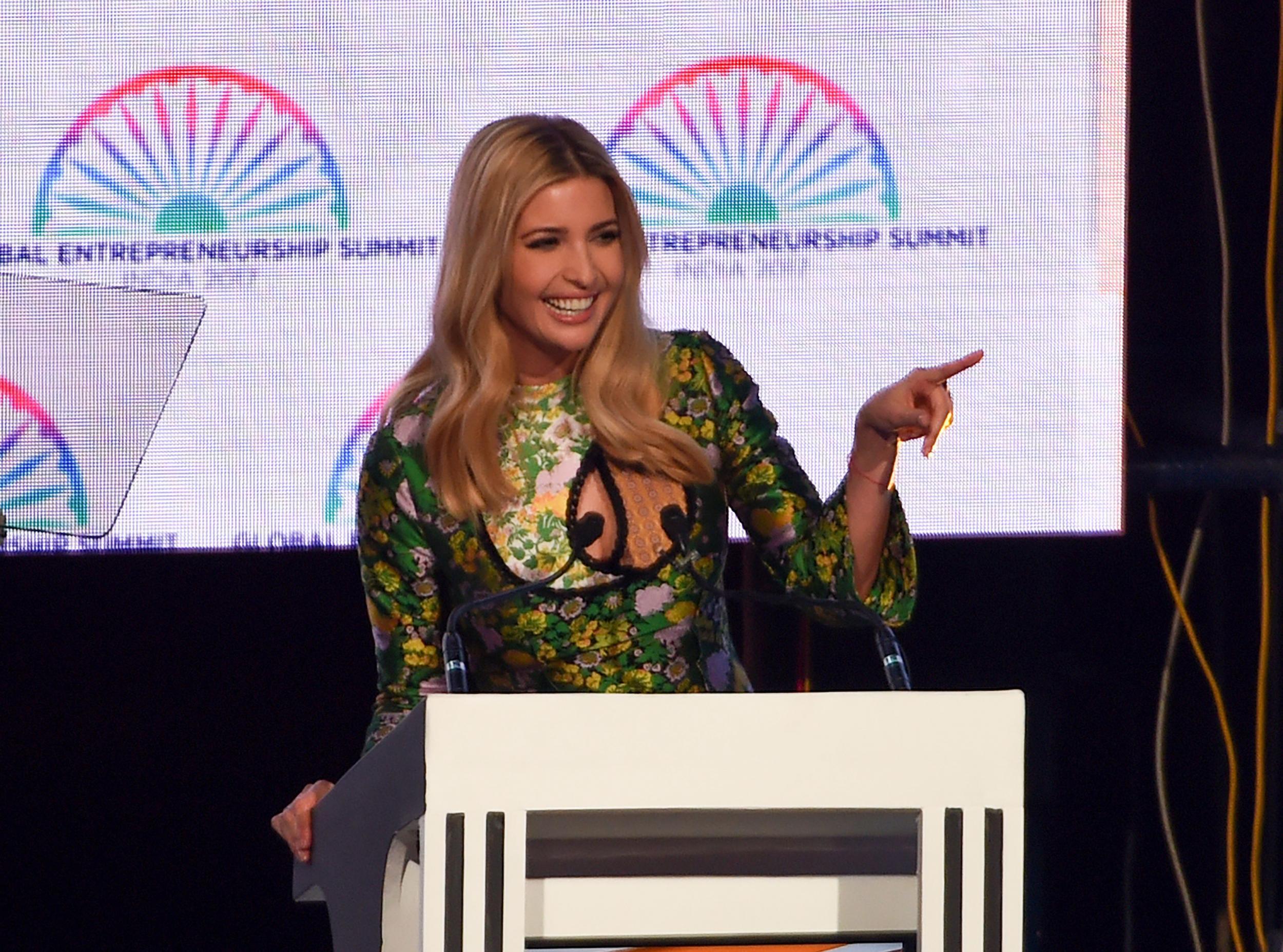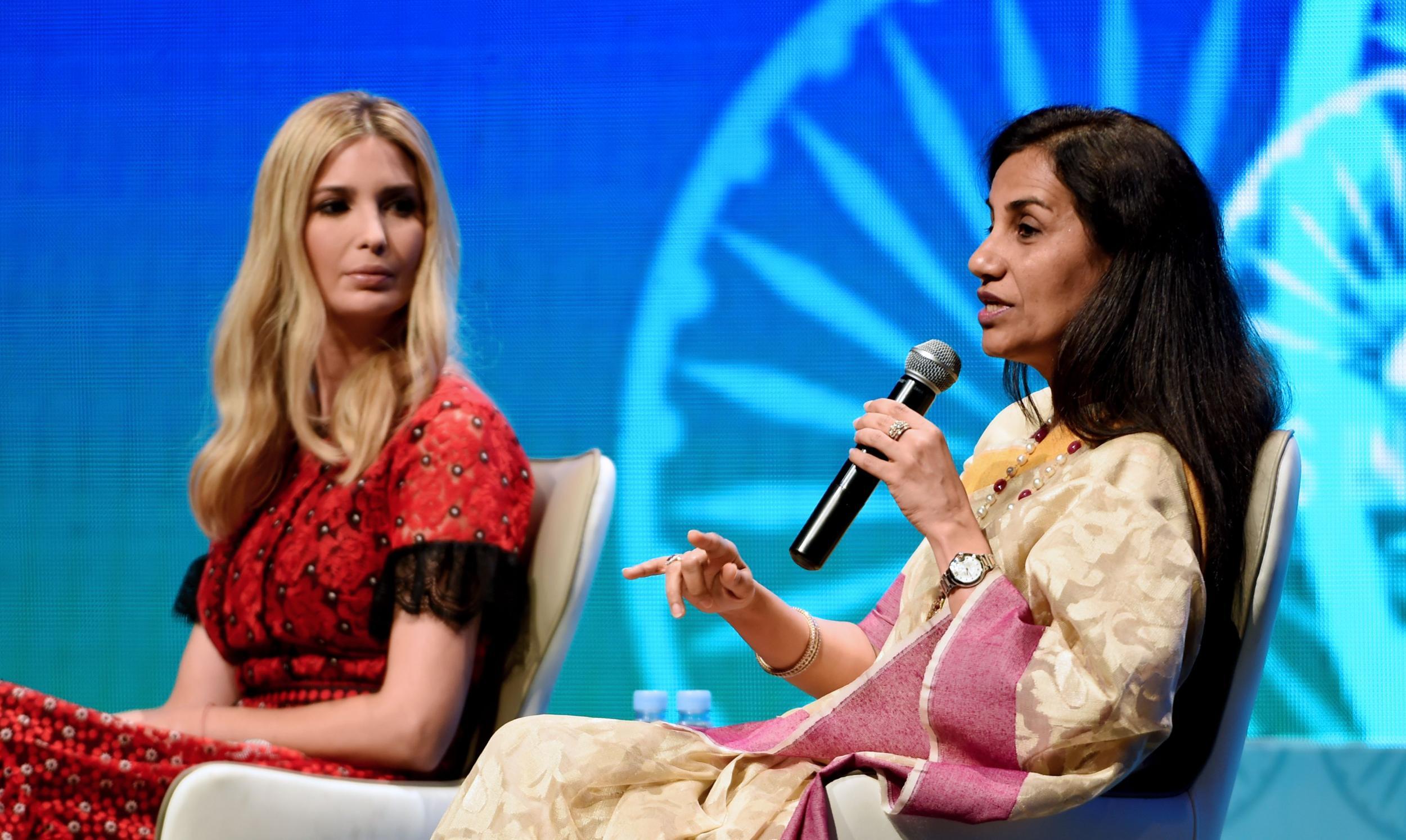Ivanka Trump accused of cultural appropriation for choice of clothing on India visit
Instead of wearing clothes by local designers, US President's daughter chose western clothes with Indian patterns

Your support helps us to tell the story
From reproductive rights to climate change to Big Tech, The Independent is on the ground when the story is developing. Whether it's investigating the financials of Elon Musk's pro-Trump PAC or producing our latest documentary, 'The A Word', which shines a light on the American women fighting for reproductive rights, we know how important it is to parse out the facts from the messaging.
At such a critical moment in US history, we need reporters on the ground. Your donation allows us to keep sending journalists to speak to both sides of the story.
The Independent is trusted by Americans across the entire political spectrum. And unlike many other quality news outlets, we choose not to lock Americans out of our reporting and analysis with paywalls. We believe quality journalism should be available to everyone, paid for by those who can afford it.
Your support makes all the difference.Ivanka Trump has been accused of cultural appropriation after she wore clothes embroidered with Indian patterns that were created by western designers, during a recent trip to India.
At the Global Entrepreneurship Summit in the southern city of Hyderabad, the US President's daughter wore a £2,600 dress covered with oriental-style flowers by British label Erdem, along with two outfits by American designer Tory Burch.
All featured patterns similar to those used in Indian embroidery, prompting criticism by some members of India's media.
A scathing article on the Daily O, an opinion website owned by India Today Group, accused Ms Trump, who serves as an unpaid adviser to her father, of “superficial assimilation of culture”
A senior editor on Vogue India was similarly critical of Ms Trump, arguing that the former businesswoman and fashion designer should have worn clothes made by designers in the country.
“If Ivanka’s clothes are to be an acknowledgement of an ancient and rich culture like ours, especially as she arrives as a dignitary, then the sartorial ‘tribute’ should be authentic in its intention,” Bandana Tewari told The New York Times.
"We would rather see her wear a hand-woven sari made in our country or a handmade gown made in her own country. But to hybridize the two, in an era of unfiltered diversity, is a superfluous nod to half-acceptance.”
It had been rumoured that Ms Trump would wear a sari gown given to her as a welcome gift by the well known Bollywood costume designer and fashion stylist, Neeta Lulla.
But instead Ms Trump chose a Tory Burch outfit which the Daily O described as a “floral gown that looked like a ‘me-too’ of a Kashmiri pheran”.
Ms Trump also wore a red floral print dress by London-based, Bombay-born designer Saloni Lodha. She also appeared in a dress by the Indonesian designer Biyan Wanaatmadja to take a tour of the Golconda Fort in Telangana State and bid her farewells in a traditional kurta dress.
Vanessa Friedman, The New York Times chief fashion critic argued Ms Trump’s clothing choices shared parallels with orientalism – Edward Said’s famous theory which argues Western societies perceive and patronise Arab culture as exotic, backward, and uncivilised.

“The selections had echoes of orientalism and ornamentation - just as Ms Trump’s choice of a kimono-inspired dress, complete with obi belt, by the Colombian designer Johanna Ortiz, did in Japan earlier this month,” she wrote. “And just as Melania Trump’s Gucci gown with faux Chinese embroidery did during the Trumps’ state visit to China.
“Instead of wearing work by a designer that spoke to the nuances of the country (a tactic adopted often by Michelle Obama, for example), Ms Trump opted, at least initially, for the most obvious: clothes by outsiders who dipped into their fantasy of India as opposed to its reality.”
However, the majority of Indian fashion critics were fairly positive about Ms Trump’s clothing choices and applauded her for shunning her usual ensemble for more reserved, traditional clothes.
"Dressed to the nines, the businesswoman impressed one and all with a lovely mix of dresses by western and Indian designers," wrote The Times of India.
The issue of cultural appropriation – which at its most simple is defined as adopting the elements of one culture by members of another culture – has gained increasing attention in recent years but its exact meaning remains fiercely debated.
The Cambridge Dictionary defines it as “the act of taking or using things from a culture that is not your own, especially without showing that you understand or respect this culture”.
As well as being criticised for her fashion choices, Ms Trump was accused of hypocrisy for delivering a speech hailing the importance of female empowerment and equality.
The Independent contacted Ms Trump's representatives for comment but none had been received at the time of publication.
Join our commenting forum
Join thought-provoking conversations, follow other Independent readers and see their replies
Comments